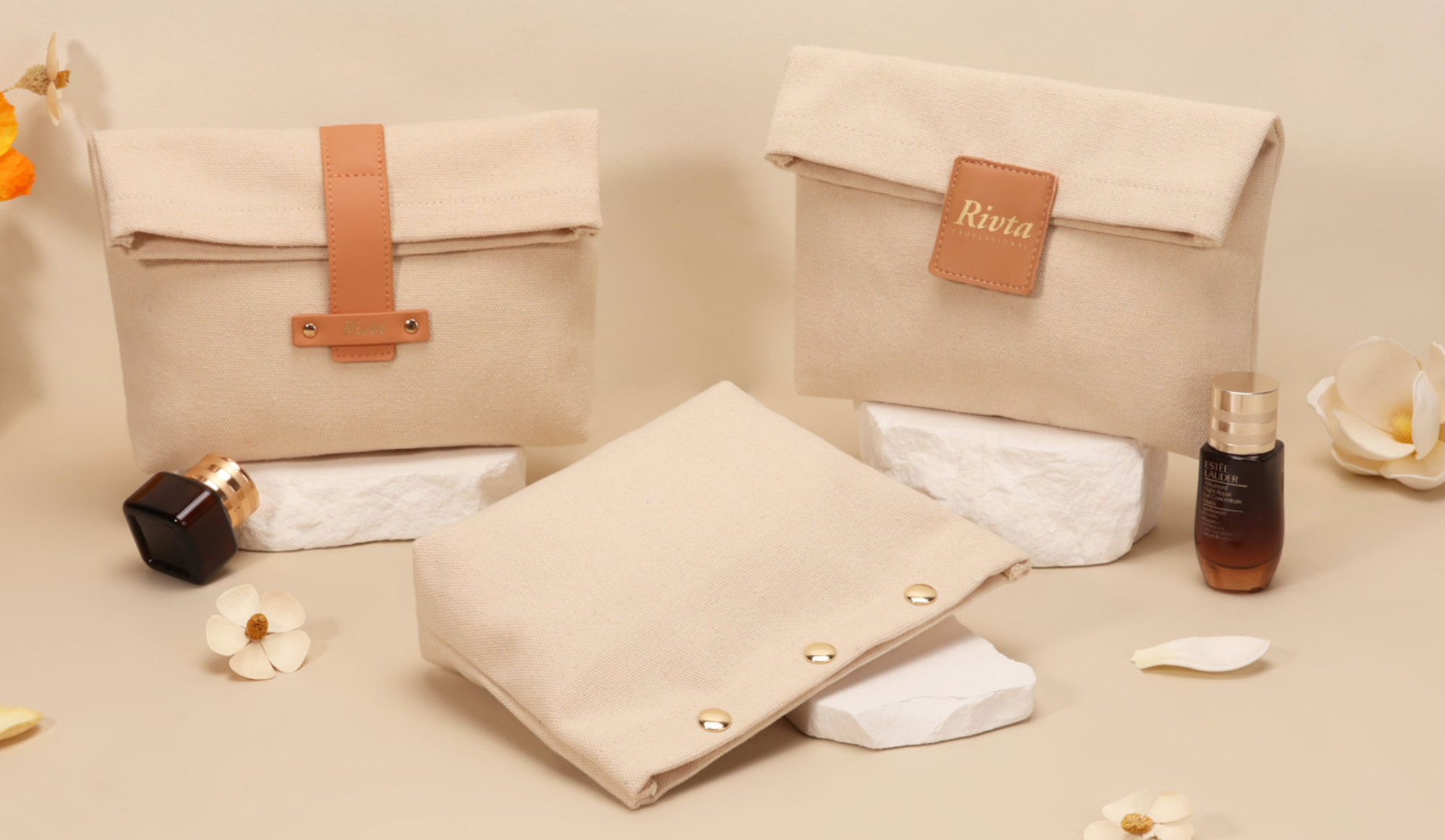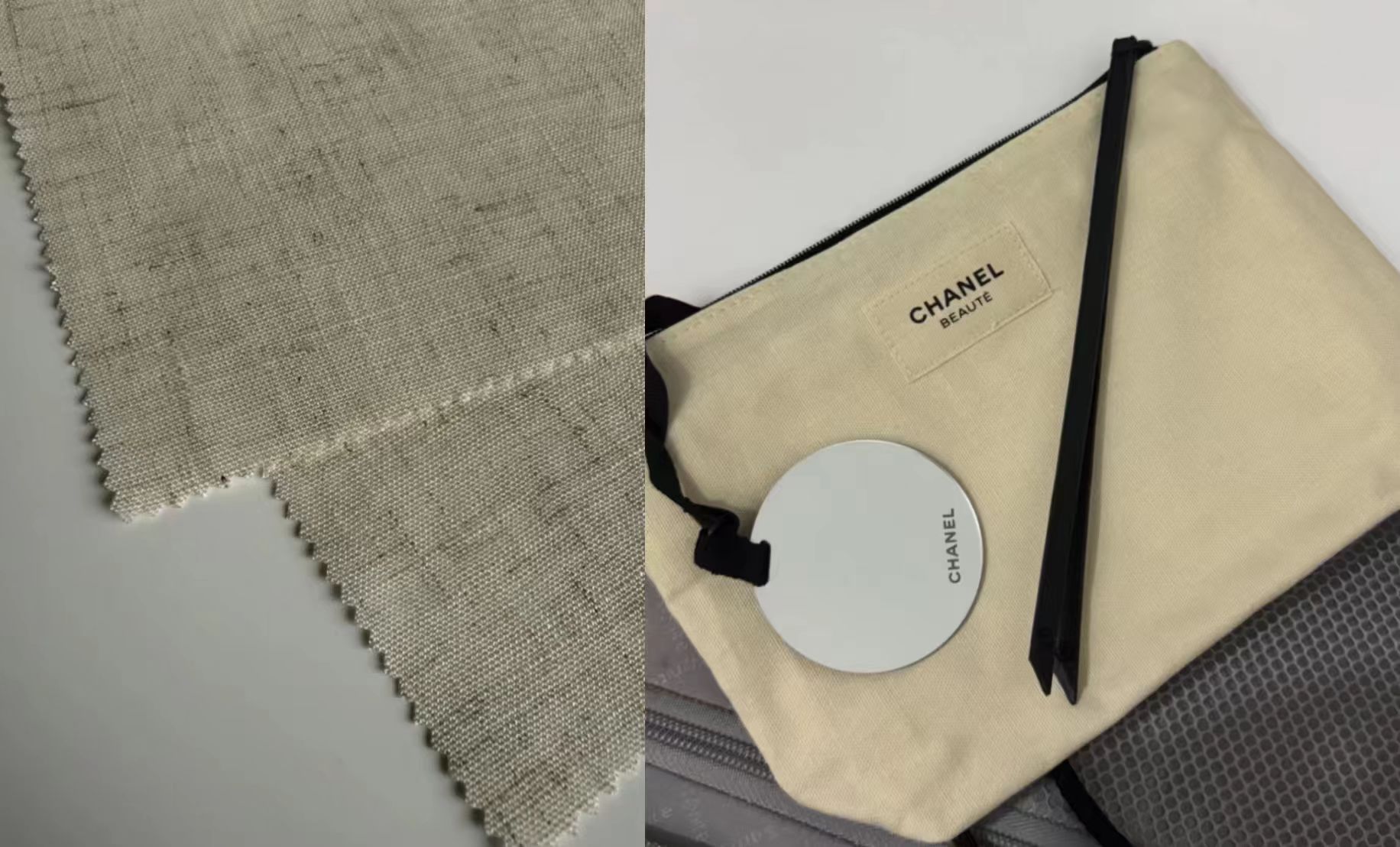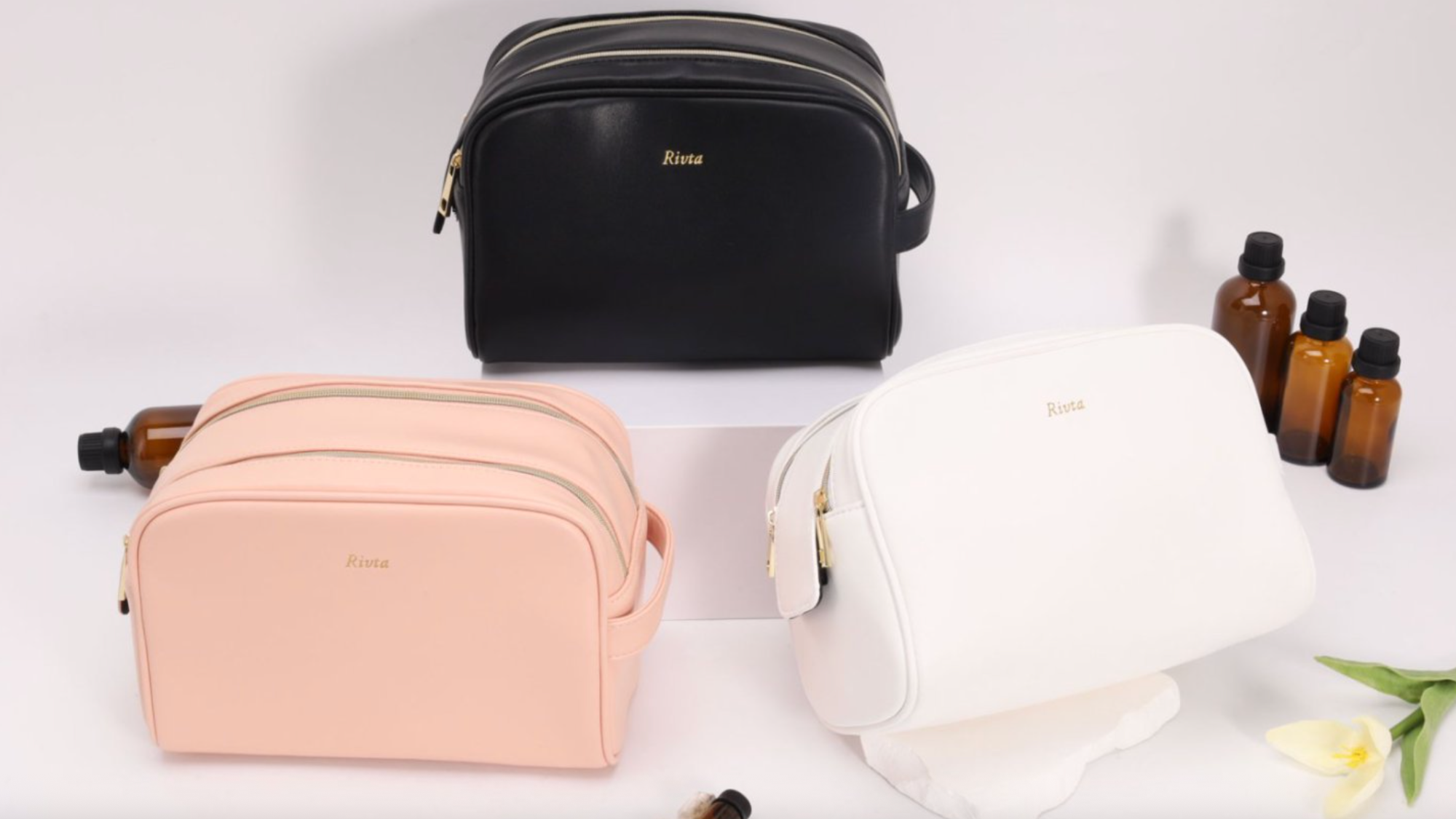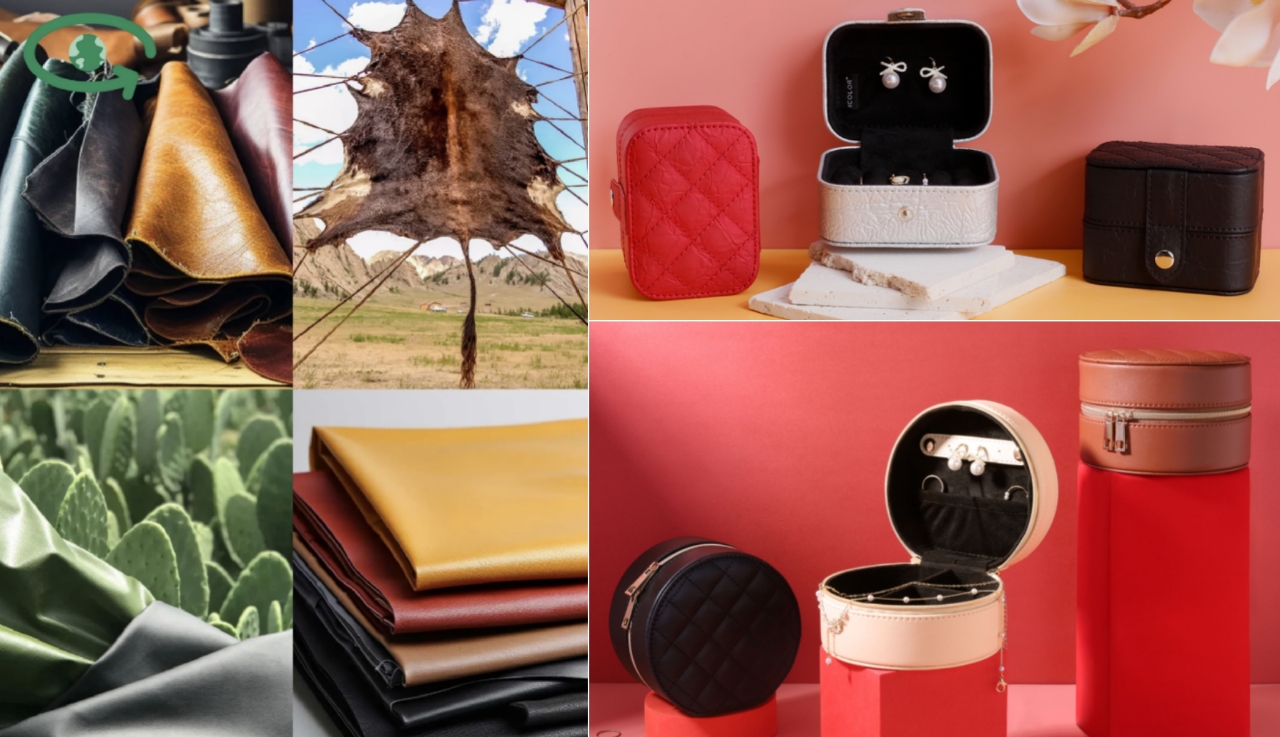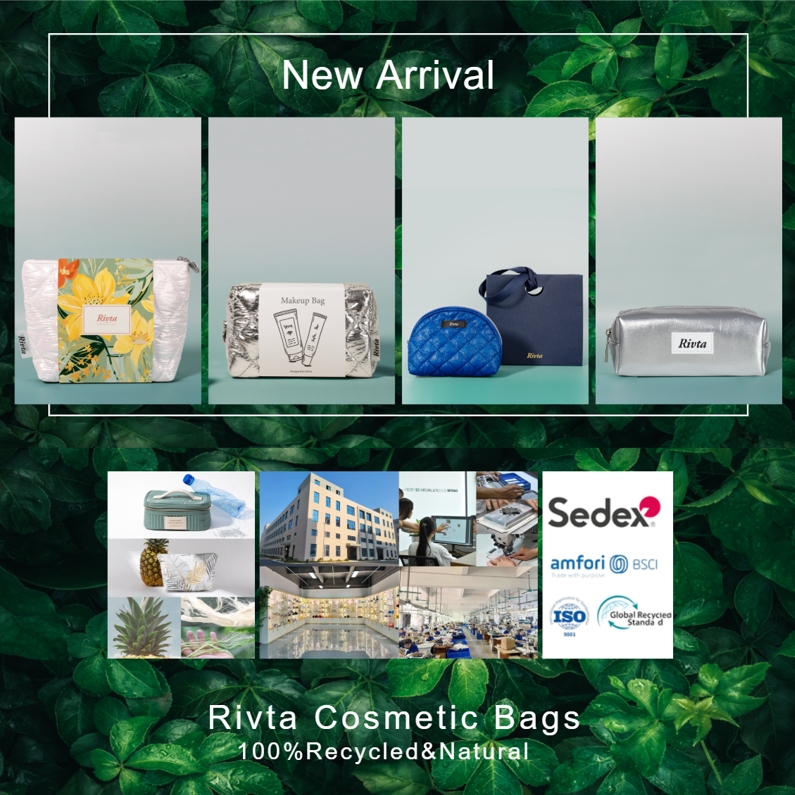Which Is More Eco-Friendly: Recycled Cosmetic Bags or Organic Cosmetic Bags?
In an age where sustainability is becoming an increasingly important factor in consumer decision-making, more and more people are seeking eco-friendly alternatives in all aspects of their lives, including beauty and skincare products. One key area of focus is packaging—specifically cosmetic bags. Cosmetic bags are essential accessories for keeping beauty products organized, but the materials used to make them often have a significant environmental impact. As eco-conscious consumers look for ways to reduce their carbon footprint, the debate between recycled cosmetic bags and organic cosmetic bags has become increasingly relevant.
Both recycled and organic cosmetic bags claim to be better for the environment than their conventional counterparts, but how do they stack up in terms of sustainability? In this blog, we’ll explore the pros and cons of both options and help you determine which one is truly more eco-friendly.
What Makes a Cosmetic Bag Eco-Friendly?
Before diving into the comparison, it’s essential to understand what qualifies a cosmetic bag as eco-friendly. Eco-friendly bags are typically made from materials that have a lower environmental impact throughout their lifecycle. This can mean using recycled materials, natural fibers, or sustainable manufacturing processes. In general, an eco-friendly cosmetic bag should be:
Made from sustainable materials: The materials used to make the bag should come from renewable sources or be repurposed from waste.
Durable and long-lasting: A bag that lasts longer reduces the need for replacement and helps minimize waste.
Biodegradable or recyclable: If the bag is eventually discarded, it should be able to break down naturally or be recycled.
Manufactured using eco-conscious processes: The production process should minimize energy consumption, water usage, and harmful emissions.
Now, let’s look at how recycled cosmetic bags and organic cosmetic bags measure up to these criteria.
Recycled Cosmetic Bags
Recycled cosmetic bags are made from materials that have been previously used and repurposed. Commonly used recycled materials include PET plastic (recycled from bottles), fabric scraps, and even discarded clothing or textiles. These bags are an excellent choice for eco-conscious consumers because they help divert waste from landfills and give new life to materials that would otherwise be discarded.
Advantages of Recycled Cosmetic Bags
Waste Reduction
The most obvious benefit of recycled cosmetic bags is that they contribute to reducing waste. By using materials that would otherwise end up in landfills, recycled bags help reduce the need for virgin materials, which are often sourced through resource-intensive processes that can have harmful environmental impacts.
Lower Carbon Footprint
Recycling materials typically requires less energy than producing new materials. For example, recycling plastic bottles into fabric uses less energy than making new plastic from petroleum. This results in a lower carbon footprint for recycled cosmetic bags, especially when compared to products made from virgin materials.
Less Water Consumption
Producing new textiles often requires large amounts of water, especially in the case of cotton, which is a water-intensive crop. By using recycled fabrics, less water is consumed during the manufacturing process, which can help conserve precious water resources.
Customization and Style
Recycled materials are often versatile, allowing for the creation of trendy and stylish bags. Many recycled cosmetic bags come in unique designs and colors that are appealing to consumers who want both style and sustainability.
Recyclability
When recycled bags reach the end of their life cycle, they can often be recycled again, which reduces waste even further.
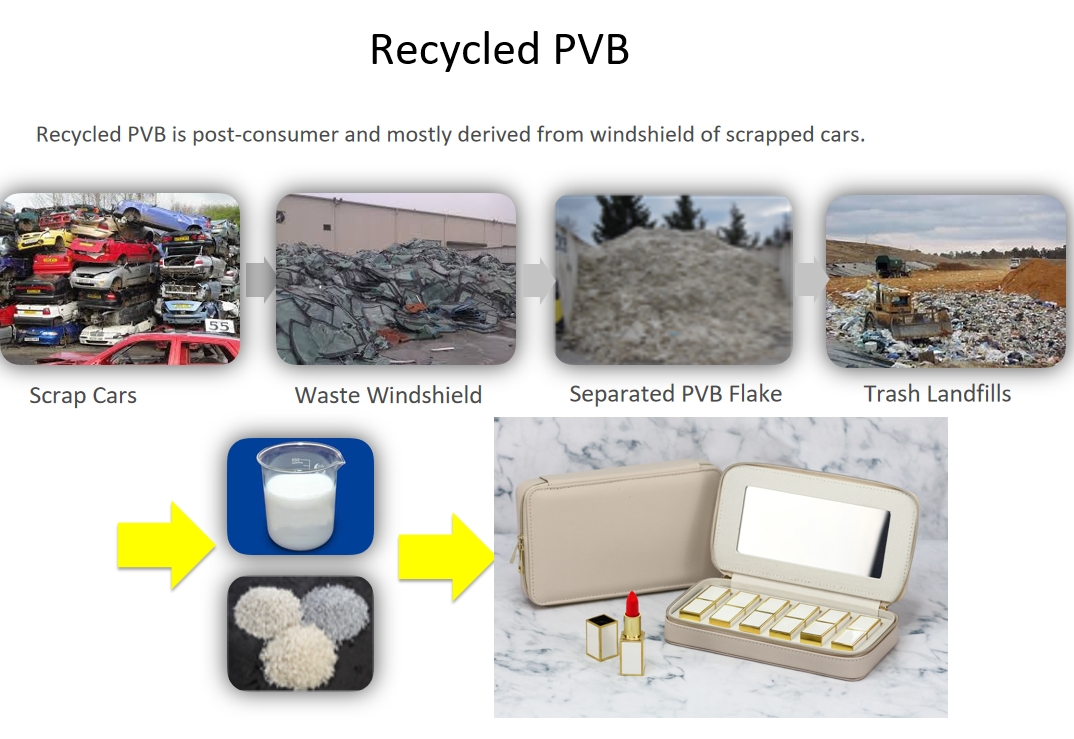
Disadvantages of Recycled Cosmetic Bags
Potential for Contaminants
While recycling helps divert waste from landfills, there’s always the risk that contaminants could remain in the recycled materials, especially when dealing with mixed waste. This could affect the quality and safety of the final product.
Quality Concerns
Some recycled materials may not be as durable as new materials. For instance, recycled plastic or fabric can wear out more quickly over time compared to their virgin counterparts.
Limited Availability of Certain Materials
Not all materials are easily recyclable, and sometimes, recycled materials may be limited in availability, which can drive up production costs or limit design options.
Organic Cosmetic Bags
Organic cosmetic bags are made from natural fibers that have been grown without the use of synthetic pesticides, fertilizers, or genetically modified organisms (GMOs). Common organic materials used for cosmetic bags include organic cotton, hemp, and linen. These bags are often marketed as being more eco-friendly because they come from renewable resources and are grown using sustainable agricultural practices.
No Synthetic Chemicals
Organic fabrics are grown without the use of harmful chemicals, which reduces the environmental impact of conventional farming. This is especially important in preventing soil and water contamination, which can be caused by synthetic pesticides and fertilizers used in conventional cotton farming.
Better for Biodiversity
Organic farming methods promote biodiversity by avoiding the use of harmful chemicals and encouraging healthier ecosystems. Organic cotton, for example, is often grown in rotation with other crops, which helps prevent soil depletion and supports a more diverse range of plant and animal species.
Biodegradable
Organic cosmetic bags are typically made from natural fibers, which are biodegradable. If an organic bag is discarded, it will decompose naturally without leaving behind harmful residues. This is a significant advantage over synthetic materials, which can take hundreds of years to break down in landfills.
Sustainable Farming Practices
Organic farming tends to use more sustainable practices, such as crop rotation, reduced water consumption, and minimal use of energy-intensive inputs. These practices contribute to healthier ecosystems and can help mitigate the effects of climate change.
Healthier for Humans
Since organic bags are made without synthetic pesticides or fertilizers, they are often considered a healthier option for consumers. Some people may have skin sensitivities or allergies to chemicals found in conventionally grown cotton or synthetic materials, making organic bags a more skin-friendly choice.
Disadvantages of Organic Cosmetic Bags
Higher Production Costs
Organic farming practices are often more labor-intensive and yield lower crop outputs than conventional farming, which can drive up the price of organic materials. As a result, organic cosmetic bags can be more expensive for consumers than their non-organic counterparts.
Land Use
Organic farming often requires more land to produce the same amount of material as conventional farming. This can contribute to deforestation and habitat destruction, especially in areas where land is being converted for agricultural use. While organic farming is better for the soil, it may still have environmental impacts, particularly in terms of land use.
Durability Concerns
While organic materials like cotton and hemp are durable, they may not be as resilient as some synthetic alternatives. Depending on the manufacturing process, organic cosmetic bags may be more prone to wear and tear over time, especially in high-use scenarios.
Comparing Recycled and Organic Cosmetic Bags: Which Is More Eco-Friendly?
When it comes to sustainability, both recycled and organic cosmetic bags have their strengths and weaknesses. Here’s a summary of how they compare:
| Factor | Recycled Cosmetic Bags | Organic Cosmetic Bags |
|---|---|---|
| Waste Reduction | Excellent (reduces waste by repurposing materials) | Moderate (depends on the land and agricultural practices) |
| Carbon Footprint | Lower than virgin materials but can vary depending on the material and process | Generally low, but depends on the farming and processing methods |
| Water Usage | Lower (less water used in recycling compared to virgin material production) | Lower (no water-intensive pesticides or fertilizers used) |
| Biodegradability | Often recyclable, but some recycled materials may not be biodegradable | Biodegradable (natural fibers break down naturally) |
| Durability | Can vary (some recycled materials may wear out faster) | Durable, but some natural fibers may be less durable than synthetics |
| Chemical Use | Minimal to none (since recycled materials are repurposed) | No synthetic pesticides or chemicals used in production |
Conclusion: Which Is More Eco-Friendly?
Both recycled cosmetic bags and organic cosmetic bags offer unique benefits, and the choice between the two ultimately depends on your priorities.
If waste reduction is your top priority, recycled cosmetic bags are likely the better option. They help repurpose existing materials and reduce landfill waste, and the recycling process typically requires less energy than creating new materials from scratch.
On the other hand, if you’re looking for bags made from renewable natural resources and you’re concerned about avoiding chemicals and promoting sustainable farming practices, organic cosmetic bags might be a better choice for you.
For the most eco-conscious choice, look for brands that combine both approaches, using recycled organic materials or recycled fabrics that are sustainably sourced. In the end, both options are far more eco-friendly than conventional synthetic cosmetic bags, so it’s about making a choice that aligns with your personal sustainability goals.
